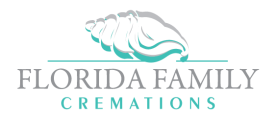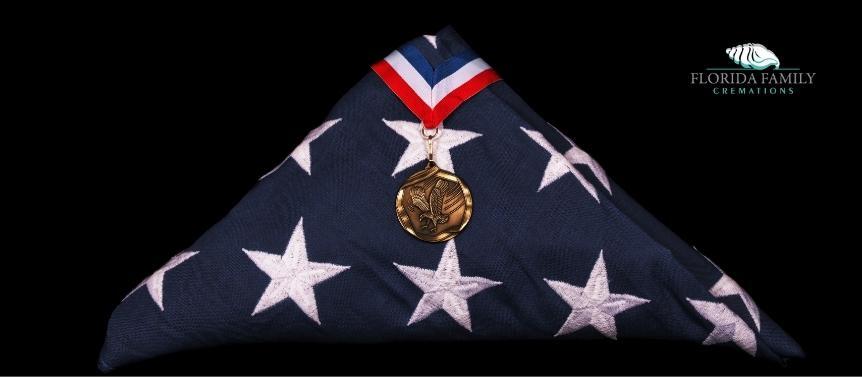Whether you are a surviving spouse, an active service member, or a military veteran, knowing what to do when a veteran dies is essential. There’s a list of crucial documentation and necessary steps you must take to ensure you and eligible family members receive burial benefits. Most importantly, this information guarantees the military veteran gets a dignified send-off.
Here’s a helpful guide to what to do when a veteran dies.
Checklist: What to Do When a Veteran Dies
1. Identify which family member will take charge of the final disposition process
Generally, the surviving spouse, the deceased’s children, and next-of-kin are responsible for funeral or cremation planning. Your local funeral director will especially be helpful because of the nature of their work. Their experience makes them well-informed on the necessary paperwork, such as enough copies of the veteran’s death certificate.
2. Report the veteran’s death
The process of reporting the death of a loved one depends on where they die. If it’s a hospital or hospice, the staff will handle the pronouncement. Otherwise, you or the family members present during the death must call 911.
It is usually at this point that you or other family members contact a funeral home to facilitate transportation of the deceased. Also, you will need to decide which end-of-life services to prepare for your loved one. Check whether the loved one has existing prepaid funeral plans.
3. Contact the specific agencies about your loved one’s death
You must contact the Defense Finance and Accounting Service(DFAS). Doing so stops the agency from sending retirement payments. Ensure you do this immediately; otherwise, you will end up repaying money received after a veteran’s death. The DFAS will then send out the following documentation for the surviving spouse to fill out and return accompanied by a copy of the veteran’s death certificate.
- FMS Form 2231
- DD Form 2656-7
- Form W-4 or W4-P
- Standard Form 1174
Be sure to contact the casualty assistant office responsible for preparing military funeral honors for deceased veterans. The casualty assistant office will require the following documentation.
- The deceased name and social security number
- Branch of service and component
- Location and date of death
- Death circumstances (natural or service injury)
- Contact details of the funeral home handling the veteran’s burial or cremation process
- Full details of the memorial service where the military honors will occur
Another agency to contact is the Veteran’s Administration. This institution is in charge of offering burial allowances that cater for funeral or cremation costs.
- A maximum of $300 for a non-service death
- A maximum of $2000 for a military service-related death
Documentation required by this agency includes:
- A marriage certificate
- DD Form 214
- The veteran’s death certificate
You must also contact your local Social Security Administration, even though they may already know about the veteran’s death. Expect a one-off death benefit of $225. You may also receive social security benefits if eligible. Report the veteran’s death to the Defense Enrollment Eligibility Reporting System to inform Tricare about the service member’s death.
4. Collect all required documents
Hopefully, the deceased veteran had their affairs in order. If this isn’t the case, you will have to search for these documents in their belongings.
Below is a list of must-have documents.
- A certified copy of the veteran’s discharge and service records
- Social security numbers of the surviving spouse, deceased veteran, and eligible dependents
- Insurance policy documents
- Certified copies of the children’s birth certificate and marriage license
- Veteran will (copy)
- Deceased veteran affairs claim number
5. Find out which loved ones are eligible for burial and survivor benefits
The US Department of Veteran Affairs requires individuals to meet the following requirements to receive burial benefits.
- Be a surviving spouse or legally recognized partner
- Be a surviving child
- Be a parent of the deceased
- Be the official administrator of the deceased estate
If eligible, these are the burial benefits you may receive. Note that these allowances are only available after you’ve covered the final disposition costs.
- A burial allowance
- Interment allowance
- Transportation reimbursement
Survivors may also receive survivor benefits if the veteran had signed up for a benefit plan upon retirement.
- The survivor benefit plan is for active-duty retirees
- The reserve component survivor benefits are for Reserve and National Guard retirees
6. Schedule a burial
Before scheduling a burial, you must first check whether the veteran or military spouse qualifies for interment at a VA national cemetery. Two national cemeteries options are available.
- Arlington national cemetery. This one has stricter requirements, and only specific groups like Purpleheart recipients and former war prisoners qualify.
- State Veterans cemeteries. Every state has a list of veteran cemeteries. The state of Florida has nine, which include Sarasota, Bay Pines, Cape Canaveral, and South Florida National Cemetery.
7. Request interment in a private cemetery
Veterans may request burial at a private cemetery. Eligible family members of loved ones buried in a private cemetery might receive death benefits if the veteran received disability payments or VA pension before passing away.
Knowing what to do when a veteran dies makes the final arrangements less challenging. Even better would be to register for a prepaid plan, whether for you or a retired veteran. Cremation in Florida is growing in popularity as more people realize the various benefits of cremation services.
Affordable cremation costs and different options to honor the deceased are a few reasons people choose cremation services in Clearwater. Plus, you can combine the traditional funeral service and direct cremation if it’s part of your religious beliefs.
Florida Family Cremations offers affordable cremation options. These include veteran services, cremation, pre-planning, and immediate need. Please feel free to contact us regarding our cremation plans and the cremation process at (727) 223-5911 today.

